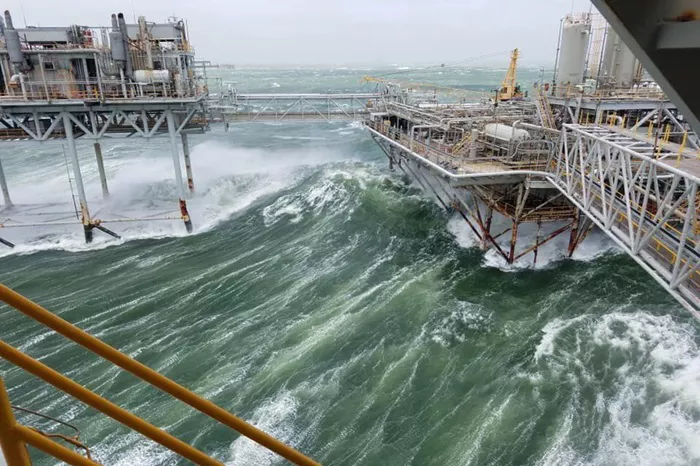As Tropical Storm Rafael approaches the Gulf of Mexico, oil companies are taking precautionary measures to protect personnel and minimize production disruptions. Major energy operators, including BP, Chevron, Equinor, and Shell, have begun evacuating non-essential workers from offshore platforms, while maintaining production where possible.
BP has initiated personnel evacuations from several of its key platforms, including Argos, Thunder Horse, and Mad Dog, while Chevron is relocating workers from Big Foot and Petronius. Shell has also moved workers from its platforms, including Appomattox, Vito, and Enchilada-Salsa. Equinor has opted to shut down production entirely, evacuating its staff as a precautionary measure.
Tropical Storm Rafael, currently with sustained winds of 60 mph, could intensify into a hurricane before reaching the Cayman Islands and moving toward Cuba. However, the National Hurricane Center has cautioned that the storm may weaken back into a tropical storm before reaching the Gulf Coast. Despite the uncertainty, past storms this year—such as Francine, Helene, and Milton—have already caused significant disruptions to oil and gas operations in the region.
If Rafael maintains its current trajectory, it could potentially impact nearly 4.9 million barrels of oil production per day in the Gulf, according to Earth Science Associates. In addition, up to 6.39 billion cubic feet of natural gas production could be affected.
This marks the 17th named storm of the 2024 Atlantic hurricane season and the tenth storm since September 24. The U.S. Energy Information Administration had earlier forecast up to 25 named storms for the season, warning that the high number of storms would exacerbate challenges for the American oil and gas industry.
Amid ongoing market volatility driven by factors including the U.S. presidential election and Middle East tensions, Rafael’s arrival adds additional uncertainty to energy prices. As of Tuesday afternoon, West Texas Intermediate (WTI) crude was trading up 1.54%, with Brent crude rising to $76.14 per barrel, a $1.06 increase for the day.
Related topic:
Where Does Fuel Oil Come From? [Revealed]
GoodSense Joins Comms Declare in Commitment to Climate Action

